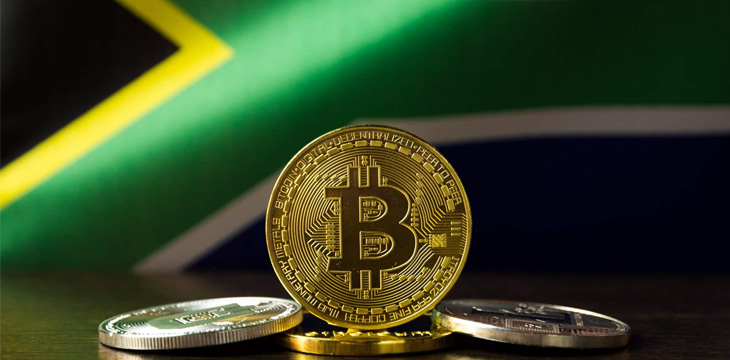|
Getting your Trinity Audio player ready...
|
A lot has happened in the cryptocurrency space in Africa. The continent continues to progress from key players in the industry. Despite challenges, the crypto market in Africa has shown great prospects.
Hackers use people’s phones to mine crypto
Hackers in South Africa are targeting personal phones to mine cryptocurrency. According to Riaan Badenhorst, the managing director of cybersecurity experts Kaspersky Lab Africa, hackers are using malware to mine cryptocurrencies on people’s phones and other devices.
Using computing power from other people’s devices allows hackers to produce cryptocurrencies without incurring the cost that comes with mining.
In June, authorities found malicious malware mining cryptocurrencies in the background of the now-defunct site of The New Age newspaper. The malware mined cryptocurrency every time users accessed the website.
Badenhorst explained that, to know whether your device is infected, one needs to check out for a few signs. These include device running slower than usual, using a lot of battery power, sky-rocked data usage and overheating.
He further advised people who suspect that their devices are infected to conduct regular software. This, he states will help improve security on the device. He added that people should avoid downloading software from unknown sources.
Apart from cryptojacking, there has been an increase in other illegal activities within the crypto space in South Africa. Marius Reitz, South Africa country manager for cryptocurrency wallet Luno states that the most common crypto scam is phishing. She said, “Phishing is an attack whereby criminals use a legitimate-looking (but fake) website, email or SMS to trick you into providing your password or details.”
Paxful plans to add more schools
Paxful has been making great progress in Africa. The leading peer-to-peer crypto market place recently announced its intention to build more schools in Africa.
While speaking to Bitcoinist, Ray Youssef stated:
“We are working to scale up the process to where we can build several schools at once in different countries at an even higher standard of education. The final goal is a school for gifted children surpassing the education given at top private schools. We believe this is the greatest boost to the emerging worlds possible, to invest in their young leaders. We are working to bring in bigger partners, and that means even more transparency on all levels.”
So far, Paxful has already built two schools in Rwanda. These schools, an elementary nursery school and a primary school were developed in partnership with Zam Zam water.
Reportedly, there is a third school underway in the planning level. The new school will be built in Kenya, Uganda, Ghana or Columbia. The project is expected to commence in the next quarter after the decision stage is completed.
Building schools in Africa will help empower young Africans. In addition, using cryptocurrencies to fund the project will ensure there is faster adoption of blockchain and cryptocurrency across the continent.
Costs hinder Crypto ATM growth
Out of the 4,000-cryptocurrency automated teller machines (ATMs) in the world, about ten are in Africa. From the ten, many of these ATMs are located in South Africa.
Reportedly, five fiat-to-crypto ATMs are located in the cities of Johannesburg, Capetown, Pretoria and Nelspruit in South Africa. Zimbabwe has two crypto ATMs owned by Golix. However, these ATMs have been abandoned after the government decision to ban cryptocurrencies.
Kenya has one crypto ATM in the capital city, Nairobi. Reportedly, there are plans to add two more ATMs in Kenya, one at an airport and another at a shopping mall. Uganda also has an ATM which is operated by local blockchain company, Kipya Bit2big.
Some individuals attributed the inadequacy of crypto ATMs in Africa with culture and economic barriers. Suleiman Murunga, the founder and CEO of Coinpesa, one of the largest crypto exchange in Uganda stated that, “Africans prefer face-to-face interactions, and that is why mobile money agents are more popular than bank ATMs. In addition, bitcoin ATMs are expensive, and the volumes currently do not justify the cost.”
William Chui, a former executive at Golix, stated:
“People in Africa, who’ve become accustomed to using mobile money and the convenience that it brings, see an ATM in a physical location as a nuisance, as it overrides the convenience that mobile money brings to the table.”
Chui adds that the bear market also contributes to the slow growth of crypto ATMs. The situation in the market has caused high transaction fees both in Africa and other parts of the world. In Kenya, the crypto ATM uses rates from three sites. At times these rates are higher and can go as high as 14%.

 02-17-2026
02-17-2026 




